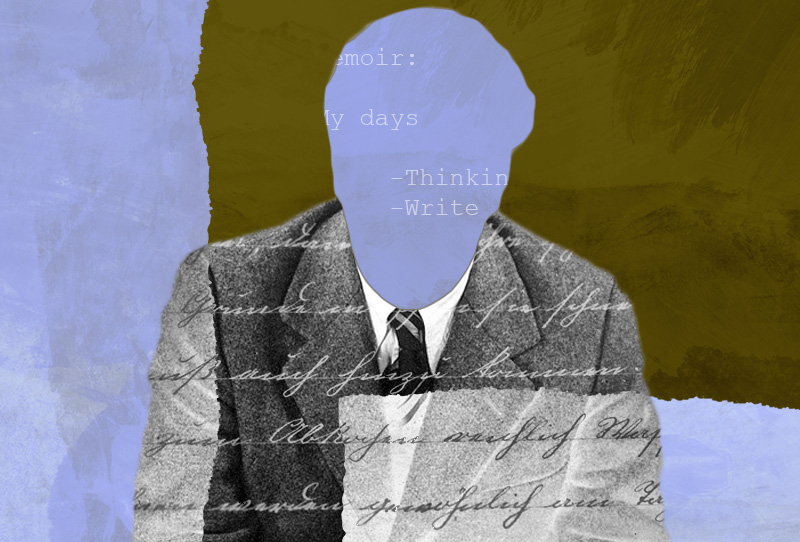Memoir Writing II
GUIDE TO NONFICTION COURSES
Memoir Writing II is a 10-week workshop, which includes lectures, exercises, and the critiquing of student projects. The prerequisite is Memoir I (10-week), or the equivalent; Level II courses work best when students know the fundamentals and have experience with the workshop process. Farther down, you can view a syllabus for this course.
Every life holds many tales. Whether your life is wildly unconventional or relatively normal, there’s bound to be something fascinating about it. That’s why the contemporary memoir—everyday people telling their stories—has become such a popular phenomenon. A memoir covers an aspect of a life, whether it’s a short piece about, say, a bicycle ride with a friend, or a book about, say, your entire childhood.
To make readers care, your memoir must be told with the finesse of fiction. Here you’ll learn techniques for focusing your life stories, as well as writing craft and how to market your work.
Whether you seek to write essay-length pieces or a book, we’ll show you how to best tell the stories from your life.


This course really clarified so many areas in Memoir Writing for me—especially how to structure and organize a book-length manuscript.
Jeanne McNulty
writer/weaver
Notes
A memoir is similar to a personal essay; both incorporate elements from the writer’s life. But a personal essay focuses more on the viewpoint, and a memoir focuses more on the story. Gotham also offers courses on Essay & Opinion Writing and an Intensive on Personal Essay Writing.
Upcoming Classes
If you show Covid symptoms OR If you have been exposed to someone with Covid – Don’t come to class for at least 5 days after showing symptoms or exposure, and then take a test to confirm that you are negative. Let your teacher know and we’ll work to give you access to your missed classes via Zoom.
If you have any questions about this, you may call (212-974-8377) or email us ([email protected]).
-
You can still enroll in this class.
-
10-Week
-
Online
Anytime, week-long sessions
Tuition: $439 (returning students: $409)
-
One-on-One
Tuition: $1895
Syllabus
This course helps you sharpen your skills at memoir craft and work toward completion of one or two short memoirs or a book. Writers often repeat Memoir II to continue their projects. Course components:
Lectures
Writing exercises
Workshopping of student projects (each student presenting work two times)
New York City/Zoom classes
The syllabus varies from teacher to teacher, term to term. Many topics will be similar to those covered in the Online classes.
Online classes
Week 1
Starring You: Putting yourself at the center. Creating a persona. Ways to reveal yourself on paper. Your distinctive voice.
Week 2
Describing Your Life: Conveying your view of things. How quick or lingering your views should be. Effective description.
Week 3
Story Construction: Story devices—desire/change, inciting incident/climax. The single event story. The chronological story. The collage story. Techniques for putting the story together.
Week 4
Action & Reflection: Finding the balance of action and reflection. Using action—scene and narration. Using reflection—present and past perspectives. Broader reflection. Blending action and reflection.
Week 5
Going Short: The really short memoir. Finding ideas. Short piece, big meaning. Analysis of a really short piece.
Week 6
Making Scenes: The importance of scenes. Veracity. Connecting scenes. Scene dynamics—conflict, dialogue, direction.
Week 7
Alternative Strategies: Alternative forms of memoir. Memoirs that don't just focus on you. Family history. Not first person. Unusual forms. Not just prose. The deliberate experiment. Memoir hybrids. Autobiographical fiction/fictional memoir.
Week 8
Openings/Closings: Strategies for opening a memoir. Strategies for closing a memoir.
Week 9
Humor: Using humor in memoir. Funny situations. Human folly. Writing humor. Exaggeration.
Week 10
In Print: The benefit of publishing short pieces (even if you're writing a book). Literary magazines. Mainstream and niche magazines. Newspapers. Guidelines for sending out work. Responses, rejection, contests. Other avenues to publication.
Note: Content may vary among individual classes.
Teachers

David Berner
David Berner is the author of the memoirs Daylight Savings Time (O-Books); Walks with Sam, October Song, (both Roundfire) and The Consequence of Stars (Adelaide); the novels Things Behind the Sun (Adelaide) and A Well-Respected Man (Strategic); and the novella Sandman: A Golf Tale (Roundfire). His essays and short stories have appeared in Chicagoland Journal, Clef Notes, Epiphany, Eunoia Review, Longshot Island, Under the Gum Tree, and Write City. He is a reporter/anchor for WBBM Radio-Chicago and a contributor to the CBS Radio Network. He is the producer/writer of the audio documentaries NaNoWriMo (PRX/WRST Oshkosh, WI), Bracelets of Grace (Prairie Public Radio), and Finding My Kerouac (WFUV Radio, NYC). He teaches at Columbia College. He holds a BS from Clarion University, an MA in Teaching from Aurora University, and an MFA in Creative Writing-Nonfiction from Fairleigh Dickinson University.
Read more
is the author of the memoirs Daylight Savings Time (O-Books); Walks with Sam, October Song, (both Roundfire) and The Consequence of Stars (Adelaide); the novels Things Behind the Sun (Adelaide) and A Well-Respected Man (Strategic); and the novella Sandman: A Golf Tale (Roundfire). His essays and short stories have appeared in Chicagoland Journal, Clef Notes, Epiphany, Eunoia Review, Longshot Island, Under the Gum Tree, and Write City. He is a reporter/anchor for WBBM Radio-Chicago and a contributor to the CBS Radio Network. He is the producer/